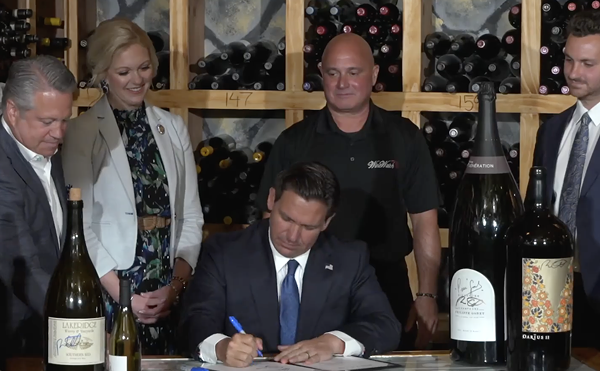St Pete’s transformation continues
Despite the fact that crime remains an issue in pockets of the city, poverty is still prevalent on the south side, and the Pier issue may continue to divide the body politic, no one can dispute that the town formerly known as “God’s Waiting Room” is having a very serious moment.
That was magnified by Rick Kriseman’s stunning 12-point mayoral victory in November over incumbent Bill Foster. Foster frustrated voters with his contradictory stances on some high-profile issues like the Pier and the Rays stadium. And he alienated the black community when he terminated Goliath Davis in early 2011 as his liaison to the south side, saying he’d replace him but never following through. But his administration wasn’t corrupt or incompetent. Foster boasted about $500 million in new development coming online in the coming year, and the arts community continued to be nationally recognized. Yet he lost by 12 points. That’s almost unheard of under the circumstances.
Perhaps the body politic simply outgrew him, with Kriseman being the conduit for a more dynamic (we won’t say hip — not yet) city. And so far the 51-year-old former City Councilman and state legislator seems to be making all the right moves during the transition. He won plaudits in naming former Bayfront Health System executive Kanika Tomalin to be his deputy mayor, with an emphasis on citywide issues. He then followed up by naming architect Andy Hayes and Yvonne Scruggs-Leftwich to head his transition team, and appointed a 44-person transition squad to look at issues like transportation, economic development, the arts, and the Rays, among other items.
St. Petersburg also is home to the People’s Budget Review, a coalition of progressive groups that combs through the city’s budget to find responsible ways to move funds around. This fall they called for the city to find $300,000 for after-school programs for youth unemployment, the homeless and other neighborhood improvement programs.
The Cuban disconnect
The hysteria in some quarters over President Obama’s handshake with Raoul Castro at Nelson Mandela’s memorial service illustrates how a segment of our national leaders (and people in Miami) are in no way prepared for a rapprochement with Cuba.
That stands in contrast to the movement taking place in Tampa over the past year to reestablish relations with the Cuban government. Tampa’s historic ties with Cuba go back to the mid-19th century and the cigar factories, as well as supporting the revolution that freed Cuba from Spain. With the third highest concentration of Cuban-Americans in the country, there is an emotional cord tying the Cigar City and the People’s Republic.
So it was considered a major deal when Tampa Congresswoman Kathy Castor came back from a visit to Cuba this spring and declared that it was time to end the economic sanctions. “I don’t meet anyone anymore, here or wherever I go, who [believes] that the restriction on trade and travel makes sense,” she told a cheering crowd at Tampa’s Mise en Place in March.
The Greater Tampa Chamber of Commerce also made its maiden voyage to Cuba, and Chairman Bob Rohrlack discussed the possibilities of re-instituting an economic relationship with Cuba. And there are now regular plane flights to Havana from Tampa International.
But it will be up to President Obama and Congress to end the sanctions.
At a conference on Cuban-American relations hosted by Al Fox this past spring, an all-star cast of Cuba experts met in Ybor City to talk about that prospect, but even there the euphoria was muted.
Colin Powell’s former chief of staff, Lawrence Wilkerson, acknowledged that a change in Cuban policy was not a priority with the Obama administration and accused the president of lacking “moral courage” when it came to ending the sanctions.
Technically, normalizing relations with Cuba would require Congress to repeal the Helms-Burton Law created in 1996. For that to happen, the Cuban government would need to legalize all political activity; release all political prisoners and international inspections of Cuban prisons; and abolish the Ministry of Interior, its State Security branch and the Committees for the Defense of the Revolution. The law also requires a commitment to holding free, fair and internationally supervised elections within 18 months after the transition government assumes power, with the participation of multiple political powers and free access to the mass media.
Although there was maybe more to the president’s handshake with Raoul Castro than mere courtesy, it remains questionable whether our policy will change on this issue in 2014.















